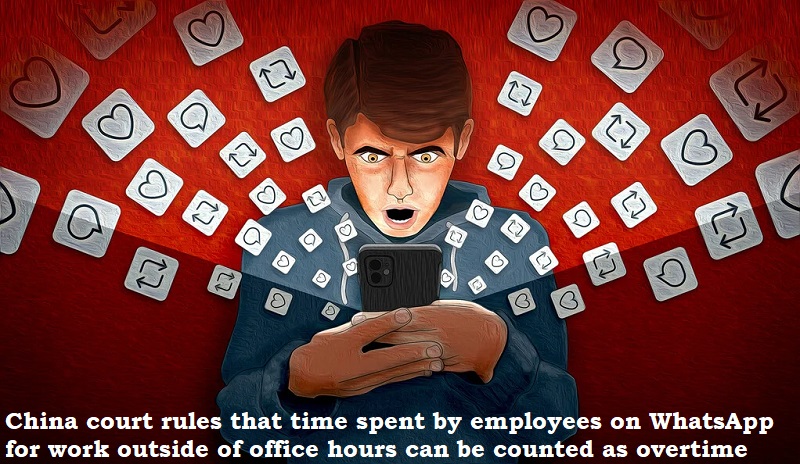
Nowadays, technology enables us to be constantly connected with our loved ones and colleagues, which is generally viewed as positive. However, a negative aspect that is often overlooked is that many of us end up working overtime without realizing it, as we continue to respond to work-related queries outside of office hours through instant messaging apps like WhatsApp. The problem is that this type of work is not considered as overtime and is not accepted as such when done outside of work hours. However, a court in China has recently issued a ruling that may change this narrative.
The court ruled that the time employees spend using WhatsApp for work-related purposes outside of office hours can be considered as overtime. The ruling was made in favor of an employee who claimed to have worked more than 2,000 hours of overtime in one year, primarily due to responding to messages on the app. The court instructed the employer to pay for the additional hours worked, awarding the employee around $4,365 or 30,000 yuan for work outside of office hours.
The employer disputed the claim of overtime, stating that employees only needed to reply to ‘occasional questions’ from colleagues. This ruling is considered a victory for workers’ rights in China, where labor laws are often poorly enforced, and employees are susceptible to exploitation.
In China, long working hours are common, and workers are frequently expected to be available 24/7 through messaging apps like WhatsApp or its Chinese equivalent, WeChat. The ruling may have implications for other Chinese companies that also rely heavily on messaging apps for work-related communication, prompting them to re-evaluate their communication policies. Additionally, the judgement raises questions about the legal status of apps like WhatsApp and WeChat and whether they should be subject to the same overtime rules as traditional forms of work.

Post Your Comments